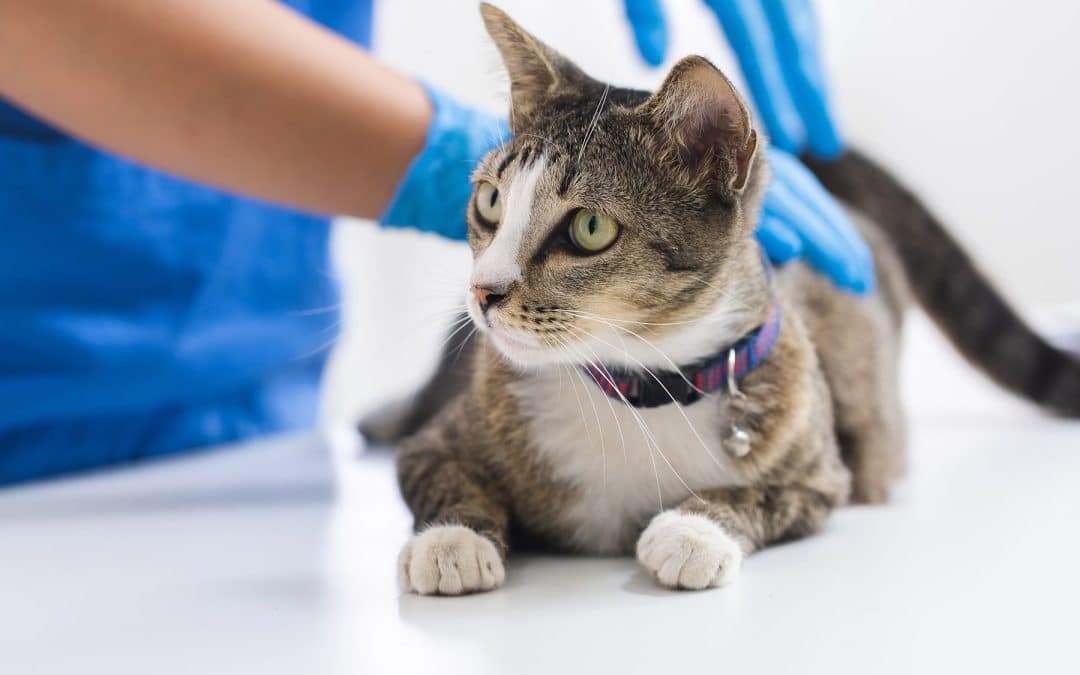Fertility challenges in pets can be confusing and emotional for pet owners. Whether you’re a breeder or simply hoping for a healthy litter, understanding the signs of fertility problems early can make a significant difference. At Bluegrass Veterinary Hospital, our experienced veterinary team provides compassionate, evidence-based reproductive care for dogs and cats to help identify and address fertility issues effectively.
This Article will address
- Early warning signs of fertility problems in dogs
- Differences between dog and cat infertility
- Behavioral and physical indicators of reproductive issues
- Hormonal imbalances and how they appear
- Breed-specific fertility concerns
- Common causes of infertility in pets
- Why to choose Bluegrass Veterinary Hospital for fertility care
Expect Kindness & Compassion
Comprehensive Veterinary Care for Your Four-Legged Family Member.
What Are the Early Warning Signs of Fertility Problems in Dogs?
Dogs experiencing fertility problems may show subtle or obvious signs. Some female dogs may skip heat cycles entirely or experience irregular cycles, making breeding attempts unsuccessful. Owners may also notice:
- A lack of interest in mating or abnormal breeding behavior
- Vaginal discharge not associated with heat
- Repeated unsuccessful breeding attempts or “silent heat” cycles
These symptoms may be linked to hormonal imbalance, uterine infection, or poor breeding timing. Early diagnostics, such as hormone testing and reproductive ultrasound, can reveal underlying causes before they lead to more serious complications.
What Differences in Symptoms Are There Between Dog and Cat Infertility?
While dogs and cats share some reproductive similarities, their fertility signs and cycles differ significantly.
Dogs often exhibit:
- Irregular or absent heat cycles
- Low progesterone levels
- Brucellosis infections leading to infertility
Cats, on the other hand, may experience:
- A lack of vocalization or mating behavior during estrus
- Failure to conceive after multiple matings
- Uterine infections that affect future fertility
Cats are also more prone to fertility issues related to stress and seasonal breeding cycles. At Bluegrass Veterinary Hospital, our team provides reproductive diagnostics tailored for both dogs and cats, ensuring species-specific treatment and care.
What Behavioral Changes Indicate Fertility Issues in Pets?
Changes in your pet’s behavior can be among the earliest indicators of fertility problems. Behavioral cues to watch for include:
- Aggression or social withdrawal during the breeding season
- Decreased interest in mating or nesting behaviors
- Excessive licking of genital areas
- Restlessness or lethargy
Because these behaviors often appear before physical symptoms, scheduling an evaluation at the first sign of change can help prevent long-term reproductive complications.
What Physical Symptoms Accompany Infertility in Dogs and Cats?
Physical changes often accompany reproductive dysfunction. You may observe:
- Irregular estrus cycles or skipped heats
- Swollen mammary glands without pregnancy
- Vaginal or penile discharge
- Hair thinning or coat dullness caused by a hormonal imbalance
Each of these signs can indicate issues that warrant further evaluation. Diagnostic tools such as hormone testing, vaginal cytology, or ultrasound imaging at Bluegrass Veterinary Hospital can help pinpoint the cause quickly and accurately.
Of note, skipped heat cycles only apply to dogs since cats are induced ovulators. This means the physical act of mating, usually multiple times, is responsible for stimulating ovulation in felines.
How Does Hormonal Imbalance Show Up in Pets with Fertility Issues?
Hormones like estrogen, progesterone, and testosterone play key roles in reproduction. When these hormones fall out of balance, pets may show signs such as:
- Weight fluctuations
- Coat dullness or hair loss
- Mood changes or decreased libido
- Prolonged or absent heat cycles
Our hospital offers comprehensive hormone panels and thyroid testing to determine whether a hormonal imbalance is contributing to infertility and to guide appropriate treatment plans.
Are There Breed-Specific Fertility Issues I Should Be Aware Of?
Some breeds are naturally predisposed to fertility challenges due to anatomy or genetics.
- Dogs: Bulldogs, Pugs, and Boston Terriers often struggle with natural breeding due to narrow hips or short snouts.
- Cats: Persian and Siamese breeds may experience higher rates of congenital reproductive issues.
Understanding these breed-specific tendencies can help guide responsible breeding decisions. Bluegrass Veterinary Hospital provides pre-breeding evaluations and genetic counseling to help identify risks before breeding begins.
What Causes Fertility Issues in Pets?
There are many possible causes of infertility, and identifying them early improves the chance of successful breeding. Common causes include:
- Hormonal imbalance
- Infections such as brucellosis or uterine inflammation
- Poor breeding timing
- Genetic or anatomical abnormalities
- Environmental stress
- Age-related decline
Through careful examination and diagnostics, our team determines the root cause and recommends the most effective course of treatment.
Why Choose Bluegrass Veterinary Hospital as Your Pet’s Fertility Vet?
At Bluegrass Veterinary Hospital, we take pride in helping pets achieve optimal health and reproductive success. Our reproductive care services combine medical expertise with compassionate support for owners.
Our advantages include:
- Advanced diagnostic tools, including ultrasound, radiology, and in-house laboratory testing
- Experienced veterinary team ready to work with you and your pet
- Personalized treatment plans tailored to your pet’s breed, age, and medical history
- A calming environment focused on reducing stress for both pets and owners
Our guiding philosophy—“Keeping Your Best Friend Healthy & Happy”—extends to every aspect of reproductive health care we provide.
Restore Your Pet’s Reproductive Health with Bluegrass Veterinary Hospital in Gallatin, TN
At Bluegrass Veterinary Hospital, our compassionate team helps pet owners navigate every step of the fertility evaluation process.
If you notice changes in your pet’s breeding behavior or cycles, contact Bluegrass Veterinary Hospital in Gallatin, TN, today. Our team offers advanced fertility diagnostics and personalized treatment to help your pet thrive.
Sources
Dr. Benjamin L. Zimmerman, DVM
Dr. Benjamin L. Zimmerman, co-owner of Bluegrass Veterinary Hospital, has been dedicated to veterinary medicine since he was eight, inspired by a formative experience on his uncle’s chicken farm. With extensive hands-on experience on various farms, he values educating pet owners about their furry companions. When not caring for animals, he enjoys playing the fiddle, cooking, and spending time outdoors with his family and pets.


